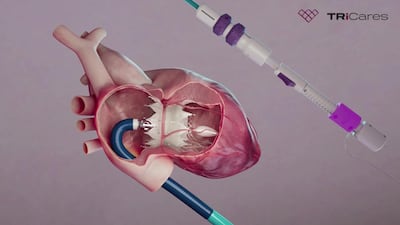Boston Scientific Corp.'s Mar. 30 announcement that it was acquiring Symetis SA, a smaller European rival in the transcatheter aortic valve replacement market, was greeted with a good dose of skepticism. Some believe that the move is an indication of declining confidence by the US company in its own TAVR platform, Lotus, which was pulled off the shelves and out of ongoing clinical trials in February due to a reported defect.
Under the terms of agreement, Boston Scientific will pay $435m upfront, all-cash, for Symetis. The latter is considered a relative latecomer to the TAVR scene. Its Acurate TA device, which...
Read the full article – start your free trial today!
Join thousands of industry professionals who rely on Medtech Insight for daily insights
- Start your 7-day free trial
- Explore trusted news, analysis, and insights
- Access comprehensive global coverage
- Enjoy instant access – no credit card required
Already a subscriber?






